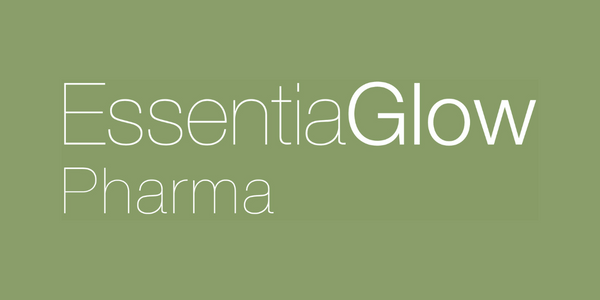Vitamin D – the sunshine vitamin
Oct 22, 2024
Also known as the sunshine vitamin, Vitamin D is a crucial nutrient for maintaining optimal health, especially for bones, muscles, and the immune system. In this article, we explore why we need it, how we can get it into our bodies, and the factors that affect our Vitamin D levels.
Benefits of Vitamin D
Bone health – calcium is a key mineral for building and maintaining strong bones, but our bodies can only absorb it if Vitamin D is present. Proper levels of Vitamin D can protect against soft, weak, brittle bones and help to prevent conditions like rickets in children or osteoporosis in adults.
Muscle health – Vitamin D supports muscle health and helps to maintain strong muscles, reducing the risk of falls and fractures in older adults.
Immune response – Vitamin D’s anti-inflammatory, antioxidant properties are believed to regulate immune responses and modulate our immune system so that we’re better able to fight off disease and infection.
Brain health - Vitamin D has neuroprotective properties, so it can help prevent damage to brain cells. It may also promote the growth of new neurons (neurogenesis) in the brain. This is important because brain cell health and growth are essential for optimal cognitive function and emotional regulation.
Mood and mental health - Vitamin D influences brain function, neurotransmitter regulation (especially serotonin), stress hormone modulation, and inflammation, all of which affect our mood and mental health. While Vitamin D alone is not a cure for mood disorders like anxiety or depression, making sure we have enough could help improve symptoms.
Chronic disease prevention – research is ongoing in this area, but some studies suggest that Vitamin D could have a protective effect that reduces the risk of chronic conditions like heart disease, diabetes, multiple sclerosis, autoimmune disease, and some cancers.
Factors affecting Vitamin D levels
As well as getting Vitamin D from some food sources, our bodies make it when direct sunlight converts a chemical in our skin into an active form of the vitamin – this is known as synthesis. The amount of Vitamin D our skin makes depends on many factors such as where we live, our lifestyle, age, and even our skin pigmentation. If you’re concerned about your Vitamin D levels, a simple blood test from your doctor will tell you if you’re deficient in it.
People who live in northern climates may struggle to get enough exposure to sunlight, especially during winter months, and this could impact their ability to synthesise or absorb Vitamin D. The same is true for people who don’t get outside often or who work night shifts.
Skin pigmentation affects the body’s ability to absorb ultraviolet B (UVB) rays, so people with darker skin tones synthesize less Vitamin D from sunlight than people with lighter skin.
Our skin’s ability to synthesize Vitamin D decreases with age. One of the main reasons for this is that as we get older, the cells in the epidermis - our outermost layer of skin - that are responsible for Vitamin D production decrease in number and activity, so our skin becomes less efficient at producing Vitamin D from sunlight. Research shows that a 70-year-old produces 75% less Vitamin D from the same amount of sun exposure as a 20-year-old.
High levels of fat in the body can limit its ability to absorb Vitamin D from the skin, as can certain medical conditions that affect the gut’s ability to absorb dietary fats.
Sources of Vitamin D
As we’ve already seen, sun exposure is one of the most effective ways to get Vitamin D. Generally, about 10 – 30 minutes of midday sun exposure several times a week is enough for many people; although this will depend on the factors we’ve just explored like age, skin tone, time of year or geography.
Unlike many other nutrients, there aren’t a lot of food sources for Vitamin D, but some of the best ones include:
Fatty fish like salmon, mackerel, sardines, and tuna.
Foods like dairy and plant-based milks, orange juice and cereals are often fortified with Vitamin D so could be incorporated as part of a varied, balanced diet.
Egg yolks contain small amounts of Vitamin D, and the better quality the eggs, the higher the amounts, so it’s best to opt for free-range or organic.
For omnivores, beef liver is another good source.
Mushrooms are a useful source of Vitamin D and exposing them to sunlight for about half an hour before eating them can boost their Vitamin D levels.
While we believe that the best source of minerals, vitamins and nutrients should be a healthy, balanced, diet rich in whole, unprocessed foods, we know that there are times when this isn’t always possible. For people who can’t get enough Vitamin D from food or sunlight, supplementation can be very beneficial. There is widespread consensus by health care professionals around the positive impact of Vitamin D supplementation. The most effective form is Vitamin D3 – which is what our tables are made of. This form is considered more potent than D2 and better at raising Vitamin D levels in the blood.
EssentiaGlow’s Vitamin D Super Strength tablets will ensure you always have enough Vitamin D in your body. Find out more about this product here.
